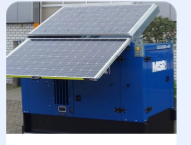In the global pursuit of sustainable development, clean energy stands as a beacon of hope, offering a pathway to a cleaner, greener future. As the world grapples with the challenges of climate change, environmental degradation, and dwindling fossil fuel reserves, the imperative to transition towards renewable sources of energy has never been more pressing. Clean energy, encompassing solar, wind, hydro, geothermal, and biomass power, presents a viable solution to mitigate carbon emissions, reduce reliance on finite resources, and foster economic growth.
One of the most prominent forms of clean energy is solar power. Harnessing the abundant energy emitted by the sun, solar panels convert sunlight into electricity with minimal environmental impact. From rooftop installations on residential homes to vast solar farms in remote landscapes, solar energy offers a decentralized and scalable solution to meet the growing demand for electricity. Furthermore, advancements in solar technology have led to increased efficiency and affordability, making it accessible to a wider range of consumers.
Wind energy also plays a significant role in the clean energy landscape. By capturing the kinetic energy of the wind, wind turbines generate electricity without emitting greenhouse gases or consuming water. Wind farms, both onshore and offshore, have become a common sight across many countries, providing a reliable source of renewable power. Moreover, ongoing research and innovation continue to improve turbine design and performance, enhancing the efficiency and cost-effectiveness of wind energy production.
Hydropower, derived from the energy of flowing water, remains one of the oldest and most widely used forms of renewable energy. Through the construction of dams and hydroelectric plants, water resources are utilized to generate electricity on a large scale. While hydropower offers significant advantages in terms of reliability and storage capacity, concerns about its environmental impact, such as habitat disruption and altered river ecosystems, have prompted the exploration of alternative approaches, such as run-of-river hydroelectricity and marine energy technologies.
Geothermal energy, extracted from the heat stored beneath the Earth’s surface, presents another promising avenue for clean energy production. By tapping into geothermal reservoirs, heat pumps can be used to generate electricity and provide heating and cooling for residential, commercial, and industrial applications. Geothermal power plants, often located in regions with high geothermal activity, offer a renewable and continuous source of energy with minimal carbon emissions and land use requirements.
Additionally, biomass energy, derived from organic materials such as wood, agricultural residues, and municipal waste, contributes to the diversification of clean energy sources. Through processes such as combustion, gasification, and anaerobic digestion, biomass can be converted into heat, electricity, and biofuels, displacing fossil fuels and reducing greenhouse gas emissions. Moreover, the utilization of biomass residues can help address waste management challenges while supporting rural economies and sustainable land management practices.
The transition to clean energy (Clean energie) is not only an environmental imperative but also an economic opportunity. Investing in renewable energy infrastructure, research, and development can spur innovation, create jobs, and stimulate economic growth. Furthermore, by reducing dependence on imported fossil fuels and volatile energy markets, countries can enhance energy security and resilience while improving public health and quality of life.
In conclusion, clean energy represents a transformative force in the global energy landscape, offering a sustainable alternative to conventional fossil fuels. Through continued investment, innovation, and collaboration, we can accelerate the transition towards a cleaner, greener future for generations to come. Embracing clean energy is not merely a choice; it is a collective responsibility and an investment in the preservation of our planet and prosperity for all.
Embracing Clean Energy: A Path to Sustainable Future



